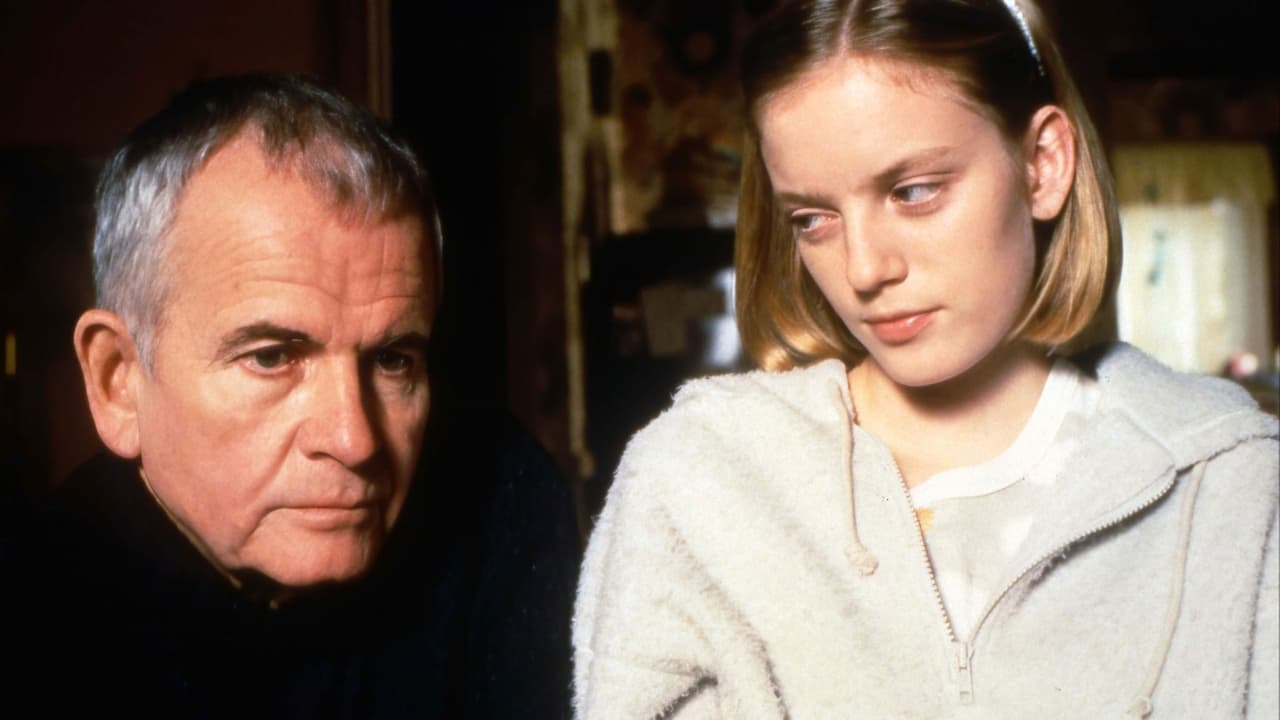



An action-packed slog
if their story seems completely bonkers, almost like a feverish work of fiction, you ain't heard nothing yet.
View MoreA film of deceptively outspoken contemporary relevance, this is cinema at its most alert, alarming and alive.
View MoreThe acting in this movie is really good.
Atom Egoyan's, The Sweet Hereafter is a film about loss and recovery. An accident involving a school bus in snowy Canadian roads has left a small town devastated which left many children dead. The grieving parents are visited by a no win no fee lawyer, Mitchell Stevens (Ian Holm.) He is a partner in a law firm and he might be just doing his job but it seems to be without much vigour or conviction. I am not sure whether money is even a motivation for him. Stevens own daughter is a drug addict who only contacts him when she wants money for more drugs. Apart from that she hates him and he knows he has lost her.He persuades some of the parents to file a class action lawsuit by claiming the design or construction of the bus was faulty.The grieving parents and some of the survivors all have some secret. Did bus driver Dolores Driscoll (Gabrielle Rose) drive too fast or drive carelessly given the road conditions? Does Nicole Burnell (Sarah Polly) one of the kids paralysed below the waist might want to take revenge on her abusive father? One of the parent, Billy (Bruce Greenwood) who was following the bus and waving at his children is against the lawsuit and wants the others to drop it.The film does not start with the crash. It is told in non chronological order and we have several story strands. one of them is the use of 'The Pied Piper of Hamelin' which draws parallels of a town suffering from the loss of its children. Maybe Stevens will lead the townsfolk out of the darkness but he is suffering as well when he recounts his struggle with his drug addict daughter to one of her old friends he meets in a plane journey.The film is about grief, sadness and the tortuous journey to recovery. Unfortunately the film does not always flow well and although I understand why some people would want to sue for damages, I never really understood why Billy did not want to sue? Nicole is paralysed, money would be useful to her and help her.
View MoreTragedy and moral ambiguity are explored at a very elongated and deliberate pace in this tale of a small rural town coping with a colossal tragedy. This is one of those Art house films that will most likely test the patience of viewers in that it's about 45 minutes too long. At least 30 minutes could have been shaved off this film to deliver its intended purpose or message whatever it may have been. We have scenes where we have family discussions and the dialogue is delivered in a very slow, monotone and lethargic rhythm. I'm not certain if this was Egoyan's method of directing the actors or if this is an underlying problem in the actors themselves. If this movie intends to be a realistic portrayal of people's responses to personal tragedy then we have a crucial problem. If not, then this can only serve as a morose allegory of cinema. The poetic narrations performed by the teenage survivor of the crash add a layer of content to the theme, but fail to provide any substantial meaning to the plot. Therefore it is up to us to make sense of this. The story of Hamelin's Pied Piper may have a personal significance to the character of Nicole, but doesn't resonate too well with the viewer. The plot and directing style doesn't connect us with the characters on an empathetic level. We are alienated from their internalized grief and aren't given enough time with them to experience that which i believe is completely necessary in stories of tragedy.Ian Holm, as the morally questionable attorney, is misused as a key character here. As a morally bifurcated and broken man we may initially cast him as a villain, but later see him as a broken man trying to identify with parents of dead or degenerate children. Greed can turn into munificence if handled tactically and justly. His acting style here looks too lethargic and preachy. We wonder if he is the effective and prestigious lawyer he pretends to be. It's even questionable why he felt that turning this situation into a Civil Lawsuit was worthwhile. And a result, we are left to decide what his morality and intentions really were. What a pain. Sam Greenwood is a strong presence in the film. With his deep southern drawl and intimidating stare he can register moments of personal confrontation which inadvertently raise the motivations of the characters involved in the lawsuit. The strangest actress in this film would have to be Sarah Polley who is very monotone, deliberate and almost ghostly. Her lilting and melancholy voice seem oddly inappropriate for a girl who is dealing with what she is going through. By the twist ending we realize that she is actually more of a manipulator than a damaged girl trying to find her way through. The moment with her pallid father in the car has a comical note which grades against the seriousness of this story.My guess is that this movie is depicting human tragedy as a new and precarious beginning where we feel vulnerable and confused. It's poetic and lugubrious. We are fed a plethora of poetic narrations and moving montages that depress and sedate our senses.
View MoreEgptian-born Canadian screenwriter, producer and director Atom Egoyan's seventh feature film, an adaptation of American writer Russel Banks' novel from 1991 which was inspired by a true story concerning a school bus accident in Alton, Texas 1989, tells the story of middle-aged attorney Mitchell Stevens who arrives in a remote rural district of Canada in December 1995 to report the circumstances surrounding a tragic school bus accident and help the parents of the victims to file an insurance-case against the bus company. A task that becomes difficult when he learns that most of the parents have numerous dark secrets. As he gets closer to the inhabitants of the small community it becomes apparent that this case has a strong personal influence on him, but his devotion brings nothing good to the parents, who begins to question his motives when they see that the case has more meaning to him than to them.The great score, the mindful dialog and the lyrical cinematography by Paul Sarossy emphasizes the emphatic and mysterious atmosphere in this resonating and realistic psychological drama which is beautifully filmed by Atom Egoyan, who creates versatile perspectives with his nuanced and subtle camera movements. His detailed and introspective screenplay examines how a bus accident affects the people in a small community and the aftermath of sorrow in a profound way, and portrays an in-depth study of character about a grieving man who has a restrained relationship to a daughter he hardly ever sees and who finds comfort and identifies with the parents who lost their children in the accident. Ian Holm's interpretation of the lawyer is outstanding in a refined and understated performance.The overall acting is good and Sarah Polley delivers a remarkable acting performance in her breakthrough role as teenager Nicole Purnell. During this brilliantly directed Canadian film, a short poem from 1842 called "The Pied Piper of Hamelin" by English poet and playwright Robert Browning (1812-1889) is read through Sarah Polley's voice-over. This fairy-tale forms a fine parallel to the story about the lawyer and the parents. With it's underlying lyrical aura and captivating narrative, this independent film stands as a poetic, compassionate and reflective masterpiece from the late 1990s.
View MoreThis is a simple story – simple in the sense described in the Storyline on the IMDb main page. But, it's from Russell Banks's novel that Atom Egoyan has written and directed one of the most complex plots ever put to film. For those interested, you'll find a complete analysis of this film's structure in Screen writing Updated by Linda Aronson, published in 2000. Incidentally, Russell Banks played the part of Dr Robeson.Avoiding the usual type of visual cues, Egoyan shows only two dates on screen to help orient the viewer to the time shifts (there are multiple shifts); instead, most are managed and revealed through the context of the scene and dialog. Which means the viewer must listen and watch carefully to stay on track. Some viewers might be annoyed.Adding to the complexity is the presentation of five different stories in the 112 minutes running time: the accident, the intrusive lawyer Mitchell (Ian Holm) and his daughter, Zoe (Caerthan Banks), the overly-motherly bus driver Dolores (Gabrielle Rose), the sex affair between Billy (Bruce Greenwood) and Risa (Alberta Watson) and, of course, the illicit and incestuous situation between Nicole (Sarah Polley) and her father, Sam (Tom McCamus).It takes a master film-maker to put all that together and achieve a work of art. On that basis, all serious film lovers should not miss this event, even if the story is unpalatable for many. Life, however, is full of such stories: read the daily tabloids.Ian Holm is the focus and catalyst of this narrative, for two reasons: first, he is, to some extent, the typical (or not so-typical) "ambulance chaser" after a buck, or too many; hence, much of the action involves his presence. Second, he is also after justice for the dead and lost children, spurred on because he lost Zoe to drugs, alcohol, AIDS etc – so she is effectively dead to him also. By trying to help the town folk in their loss, he hopes to achieve some sense of closure for his own loss – in other words, a self-serving attitude, much like the world in general.I think Holm gives the performance of his life in this film.For me, the greatest pleasure was listening to the voice-over of The Pied Piper of Hamelin, the narration of which is spoken by Nicole throughout the film. That poem serves to function as a metaphor of course for the fate that awaits her and her father: loneliness, sadness and despair in a cruel and indifferent world, while all the deceased children have moved on to the sweet hereafter.Not to be missed.November 27, 2011.
View More